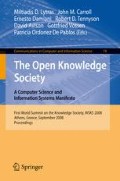Abstract
In this paper we present the Case-Based Reasoning (CBR) approach, which over the last few years has grown from a rather specific and isolated research area into a field of widespread interest both from academic and commercial stand, and has been developed to a theory of problem-solving and learning for computers and people.
More explicitly, following an introduction with the basic concepts and a brief historical background of CBR, we focus on the steps of the CBR process, the several types of the CBR methods and the applications of CBR to a wide range of domains. Finally, in our conclusions’ section, we underline the differences between CBR and the classical rule-induction algorithms, we discuss the criticism for CBR methods and we focus on the future trends of research for CBR.
Access this chapter
Tax calculation will be finalised at checkout
Purchases are for personal use only
Preview
Unable to display preview. Download preview PDF.
References
Aamodt, A., Plaza, E.: Case-Based Reasoning: Foundational Issues, Methodological Variations, and System Approaches. A. I. Communications 7(1), 39–52 (1994)
Aha, D., Kibler, D., Albert, M.K.: Instance-Based Learning Algorithms. Machine Learning 6(1) (1991)
Hall, R.P.: Computational approaches to analogical reasoning: A comparative analysis. Artificial Intelligence 39(1), 39–120 (1989)
Harmon, P.: Case-based reasoning III. Intelligent Software strategies VIII(1) (1992)
Kitano, H.: Challenges for massive parallelism. In: Proceedings of the 13th Intern. Conference on A.I., pp. 813–834. Morgan Kaufman, Chambery (1993)
Schank, R.: Dynamic memory; a theory of reminding and learning in computers and people. Cambridge Univ. Press, Cambridge (1982)
Schank, R., Leake, D.: Creativity and learning in case-based explainer. Artificial Intelligence 40(1-3), 353–385 (1989)
Voskoglou, M.: Analogical problem solving and transfer. In: Gagatsis, A., Papastavridis, S. (eds.) Proceedings 3rd Mediterranean Conf. Math. Educ., Athens, pp. 295–303 (2003)
Author information
Authors and Affiliations
Editor information
Rights and permissions
Copyright information
© 2008 Springer-Verlag Berlin Heidelberg
About this paper
Cite this paper
Voskoglou, M.G. (2008). Case-Based Reasoning: A Recent Theory for Problem-Solving and Learning in Computers and People. In: Lytras, M.D., et al. The Open Knowlege Society. A Computer Science and Information Systems Manifesto. WSKS 2008. Communications in Computer and Information Science, vol 19. Springer, Berlin, Heidelberg. https://doi.org/10.1007/978-3-540-87783-7_40
Download citation
DOI: https://doi.org/10.1007/978-3-540-87783-7_40
Publisher Name: Springer, Berlin, Heidelberg
Print ISBN: 978-3-540-87782-0
Online ISBN: 978-3-540-87783-7
eBook Packages: Computer ScienceComputer Science (R0)

